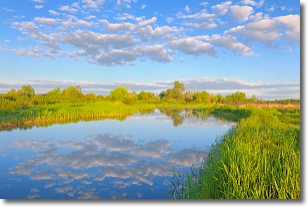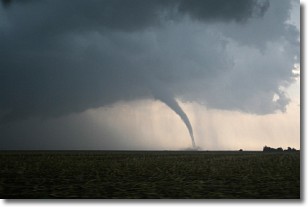Weather Alert in Virginia
Flood Warning issued May 13 at 7:21PM EDT until May 14 at 12:45AM EDT by NWS Baltimore MD/Washington DC
AREAS AFFECTED: Rockingham, VA; Hardy, WV; Pendleton, WV
DESCRIPTION: * WHAT...Flooding caused by excessive rainfall continues. * WHERE...Portions of western Virginia, including the following county, Rockingham and eastern West Virginia, including the following counties, Hardy and Pendleton. * WHEN...Until 1245 AM EDT. * IMPACTS...Flooding of rivers, creeks, streams, and other low-lying and flood-prone locations is imminent or occurring. Streams continue to rise due to excess runoff from earlier rainfall. Low-water crossings are inundated with water and may not be passable. * ADDITIONAL DETAILS... - At 716 PM EDT, local law enforcement reported heavy rain in the warned area due to thunderstorms. Flooding is ongoing or expected to begin shortly. Between 1.5 and 3 inches of rain have fallen. - Additional rainfall amounts of 0.5 to 1 inch are possible in the warned area. - Some locations that will experience flooding include... Mathias... Bergton... Criders... Yankeetown... Tunis... Fulks Run... Lost City... Sparkling Springs... Lost River... Rawley Springs... - This includes the following Flood Prone Roads... Parker Hollow Road, Upper Cove Road along Upper Cove Run, Lower Cove Road along Lower Cove Run, Kimseys Run Road, Whetzel Hollow Road along Whetzel Run, Dover Hollow Road, Route 33 between Riven Rock and Rawling Springs Rd, The German River between Bergton and Criders and Brocks Gap Road between Fulks Run and Bergton Road. - Please visit weather.gov/safety/flood for flood safety and preparedness information
INSTRUCTION: Turn around, don't drown when encountering flooded roads. Most flood deaths occur in vehicles. In hilly terrain there are hundreds of low water crossings which are potentially dangerous in heavy rain. Do not attempt to cross flooded roads. Find an alternate route.
Want more detail? Get the Complete 7 Day and Night Detailed Forecast!
Current U.S. National Radar--Current
The Current National Weather Radar is shown below with a UTC Time (subtract 5 hours from UTC to get Eastern Time).

National Weather Forecast--Current
The Current National Weather Forecast and National Weather Map are shown below.

National Weather Forecast for Tomorrow
Tomorrow National Weather Forecast and Tomorrow National Weather Map are show below.

North America Water Vapor (Moisture)
This map shows recent moisture content over North America. Bright and colored areas show high moisture (ie, clouds); brown indicates very little moisture present; black indicates no moisture.

Weather Topic: What are Stratocumulus Clouds?
Home - Education - Cloud Types - Stratocumulus Clouds
 Next Topic: Stratus Clouds
Next Topic: Stratus Clouds
Stratocumulus clouds are similar to altocumulus clouds in their
fluffy appearance, but have a slightly darker shade due to their additional mass.
A good way to distinguish the two cloud types is to hold your hand out and measure
the size of an individual cloud; if it is the size of your thumb it is generally
an altocumulus cloud, if it is the size of your hand it is generally a
stratocumulus cloud.
It is uncommon for stratocumulus clouds to produce precipitation, but if they do
it is usually a light rain or snow.
Next Topic: Stratus Clouds
Weather Topic: What are Wall Clouds?
Home - Education - Cloud Types - Wall Clouds
 Next Topic: Altocumulus Clouds
Next Topic: Altocumulus Clouds
A wall cloud forms underneath the base of a cumulonimbus cloud,
and can be a hotbed for deadly tornadoes.
Wall clouds are formed by air flowing into the cumulonimbus clouds, which can
result in the wall cloud descending from the base of the cumulonimbus cloud, or
rising fractus clouds which join to the base of the storm cloud as the wall cloud
takes shape.
Wall clouds can be very large, and in the Northern Hemisphere they generally
form at the southern edge of cumulonimbus clouds.
Next Topic: Altocumulus Clouds
Current conditions powered by WeatherAPI.com




